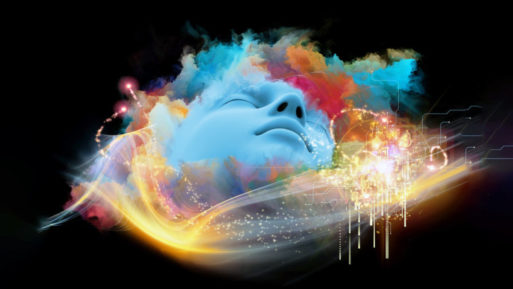
Credit: bigthink.com
Psychedelics — the “party drugs” that became part of the counterculture in the 1960s and have since been banned in the United States — are not part of what most of us consider mainstream medicine. In fact, all psychedelics, including LSD, mescaline, psilocybin and MDMA, are so-called Schedule I drugs that, according to the U.S. Drug Enforcement Agency, have no safe or acceptable medical use. Nonetheless, researchers in both the United States and Europe are currently looking at ways to use these now-illegal substances to treat a host of mental disorders, including depression, anxiety and PTSD.
Researchers at New York University’s Langone Medical Center and Johns Hopkins University, for example, have successfully used the drug psilocybin in combination with psychotherapy to treat anxiety in people with life-threatening illnesses. And in November, the Food and Drug Administration gave its approval to two clinical trials examining the efficacy of the psychedelic MDMA (more commonly known as Ecstasy) in treating PTSD. The Multidisciplinary Association for Psychedelic Studies also recently completed two pilot studies examining the effects of LSD-assisted psychotherapy in people with anxiety. The study was similar to one study done in Switzerland in 2014.
And now, a neuroscientist and a composer have teamed up to combine technology, artificial intelligence, music and psychedelics into a smartphone app with the goal of helping people everywhere achieve better mental health. The app is called Wavepaths, and while it’s still under development, it’s already producing some spectacular results, at least according to Zoe Cormier’s account in Rolling Stone.
Music as Therapy
Wavepaths was developed by famed musician/artist Brian Eno and Mendel Kaelen, a post-doctoral neuroscientist at the Imperial College of London. It uses “generative music” (a style of music that continuously creates itself according to a specific set of rules) and artificial intelligence to deliver tailored user experiences. (For a taste of what generative music sounds like, check out this version of Terry Riley’s “In C.”)

Brian Eno has been making music for half a century
Credit: theverge.com
The goal, according to Kaelen, is to allow users “to become more intimate with ourselves and others, to listen to what our emotions are telling us, to explore what can be discovered in the depths of our own minds, and to drive meaningful changes in our personal lives.”
There are two versions of the app in the works, explain Eno and Kaelen, one for lay people and one for professionals. The latter can use it in combination with psychotherapy and/or psychedelics depending on their patient’s needs.
But even the version that will be available to the public has therapeutic features, including the ability to respond to data gathered from the user and deliver a musical experience based on their individual tastes and psychological profile. And because the music is played by a computer versus a human being, its compositions are “incommensurable,” or not likely to be repeated ever again. Thus, the chance that a familiar piece of music could evoke an unhappy memory and disrupt the user’s experience is very small.
The overall effect of Wavepaths, says Eno, is to induce a sense of calm. Generative music doesn’t demand the listener’s attention, he explains. And in a world where everything else is trying to “grab you by the lapels,” that can be a welcome relief.
Eno and Kaelen also plan to integrate “listening exercises” into the app, which will teach users how to listen to music in new and potentially therapeutic ways.
“When you allow yourself to be deeply touched and fully moved by music, then music can carry you beyond the boundaries of your daily sense of self – and you can see your life from a new perspective,” Kaelen told Rolling Stone.
Still A Few Years Off
Wavepaths received seed money from the European Institute of Innovation and Technology, and Eno and Kaelen are now looking for more collaborators. And while the concept is well-developed, actual implementation is still a few years away.
In the meantime, Eno has created some “teasers” for the public in the form of 150 sound installations that include samples of what will be on the app. Unfortunately, unless you live in London, you’ll have to make a special trip to experience them.
Or you can wait for the app.

 Psychedelics and a Smartphone App Create Healing “Trips”
Psychedelics and a Smartphone App Create Healing “Trips”


 “In Case You Don’t Live Forever” by Ben Platt
“In Case You Don’t Live Forever” by Ben Platt
 Our Monthly Tip: Make an “In Case of Death” File to Ease Loved One’s Grief
Our Monthly Tip: Make an “In Case of Death” File to Ease Loved One’s Grief















